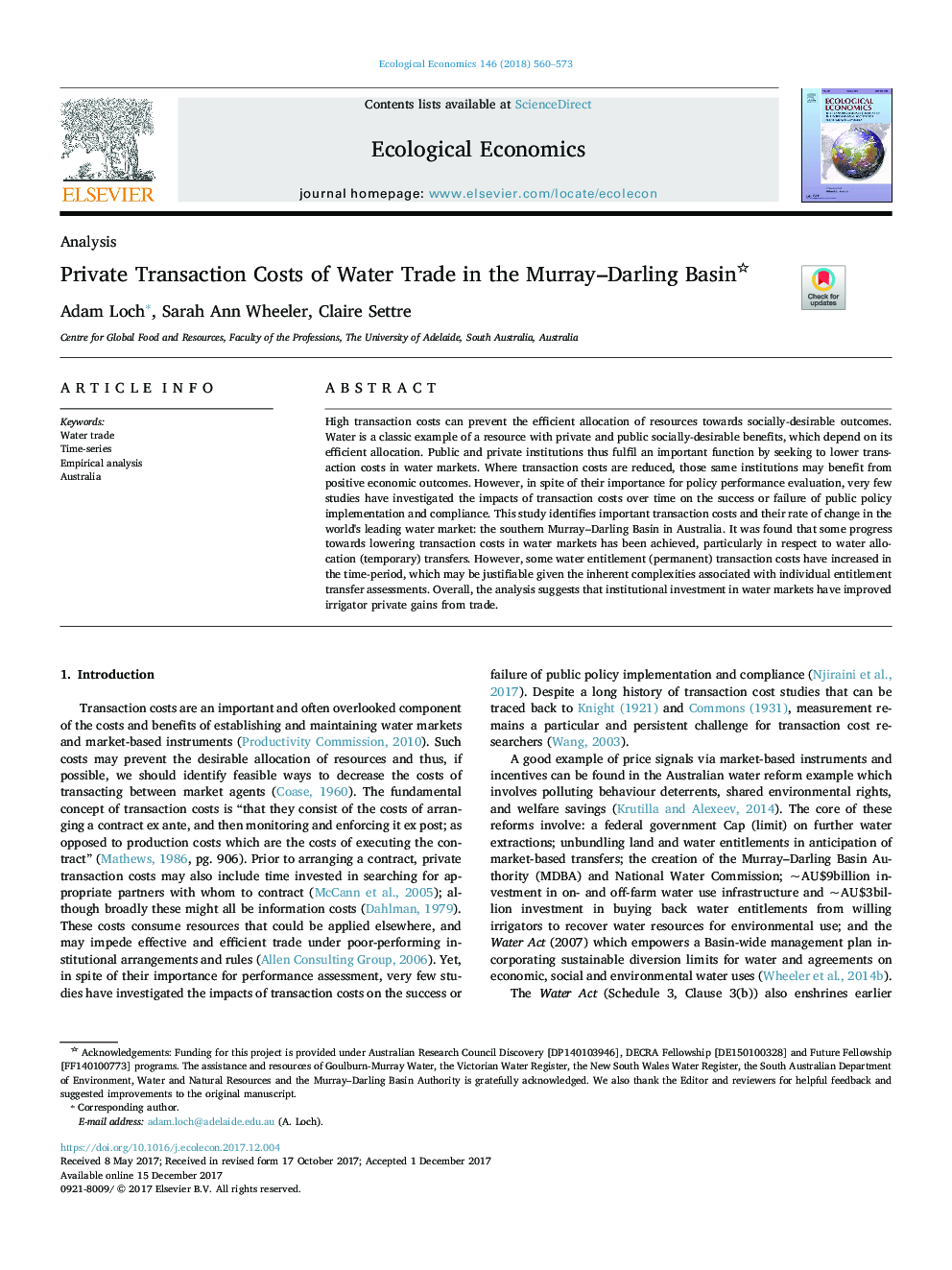| Article ID | Journal | Published Year | Pages | File Type |
|---|---|---|---|---|
| 7344621 | Ecological Economics | 2018 | 14 Pages |
Abstract
High transaction costs can prevent the efficient allocation of resources towards socially-desirable outcomes. Water is a classic example of a resource with private and public socially-desirable benefits, which depend on its efficient allocation. Public and private institutions thus fulfil an important function by seeking to lower transaction costs in water markets. Where transaction costs are reduced, those same institutions may benefit from positive economic outcomes. However, in spite of their importance for policy performance evaluation, very few studies have investigated the impacts of transaction costs over time on the success or failure of public policy implementation and compliance. This study identifies important transaction costs and their rate of change in the world's leading water market: the southern Murray-Darling Basin in Australia. It was found that some progress towards lowering transaction costs in water markets has been achieved, particularly in respect to water allocation (temporary) transfers. However, some water entitlement (permanent) transaction costs have increased in the time-period, which may be justifiable given the inherent complexities associated with individual entitlement transfer assessments. Overall, the analysis suggests that institutional investment in water markets have improved irrigator private gains from trade.
Related Topics
Life Sciences
Agricultural and Biological Sciences
Ecology, Evolution, Behavior and Systematics
Authors
Adam Loch, Sarah Ann Wheeler, Claire Settre,
